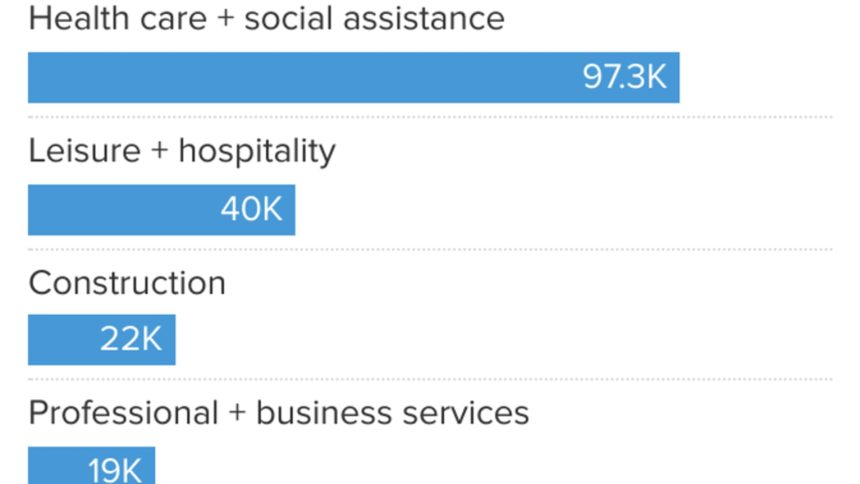The August jobs report was another sign that the U.S. labor market is cooling off, though some of the sectors that have fueled the post-pandemic rebound remain strong.
The Labor Department said Friday that the economy added 187,000 jobs in August even as the unemployment rate ticked up to 3.8%. Payrolls growth was driven by health care and social assistance, which added more than 97,000 jobs. The category would have grown by more than 100,000 when including private education, as some economists do.
Leisure and hospitality also added another 40,000 jobs.
“Leisure and hospitality still remains well below pre-pandemic levels of employment, and well below pre-pandemic trends in employment. So we’re not that surprised by continued growth there. In health care, you’re getting back to and above pre-pandemic trends in employment, in part due to increased demand,” said Andrew Patterson, senior international economist at Vanguard.
On the other side of the report, some of the categories with the biggest job losses came with important caveats.
For example, the transportation and warehousing sector lost more than 34,000 jobs. That was driven by a drop of nearly 37,000 positions in trucking, which the Labor Department attributed to a business closure. This is likely a reference to Yellow filing for bankruptcy protection in August.
Similarly, the 15,000 job losses in the information sector seemed to be driven mostly by the Hollywood strikes by writers and actors, which has largely shut down production in the United States. The sub-category for motion picture and sound recording dropped close to 17,000 jobs, the Labor Department said.
“I’d say these are probably one-offs. … We wouldn’t expect that to continue going forward. But even if you add those back in, you’re still in the low 200,000 jobs, which is a downshift from mid-200,000s which we were seeing for much of the year, and even higher than that earlier in the year,” Patterson said.
“That said, even with these ‘weaker reports,’ you’re still talking about adding 180,000 jobs a month, which is well above the rate needed to account for new entrants into the labor market,” the economist added.
The report also cited that temporary help services jobs declined roughly 19,000 and are now down 242,000 since March 2022.
–CNBC’s Gabriel Cortes contributed reporting.
Read the full article here




